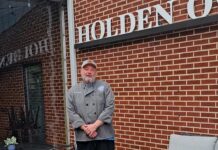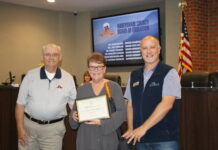
Man can live about forty days without food,
about three days without water,
about eight minutes without air,
but only for one second without hope. –Hal Lindsey
How many times have you responded to “How are you doing?” with an offhand remark like “Oh, some days are better than others?” After all, life can be tough. A divorce, losing a job, or financial problems are never easy to overcome.
Now imagine that each and every day is a struggle. Very few days are better than the one before. That you have to search hard for hope in a seemingly hopeless situation.
For Adrienne Adams Komisky, this is now her existence.
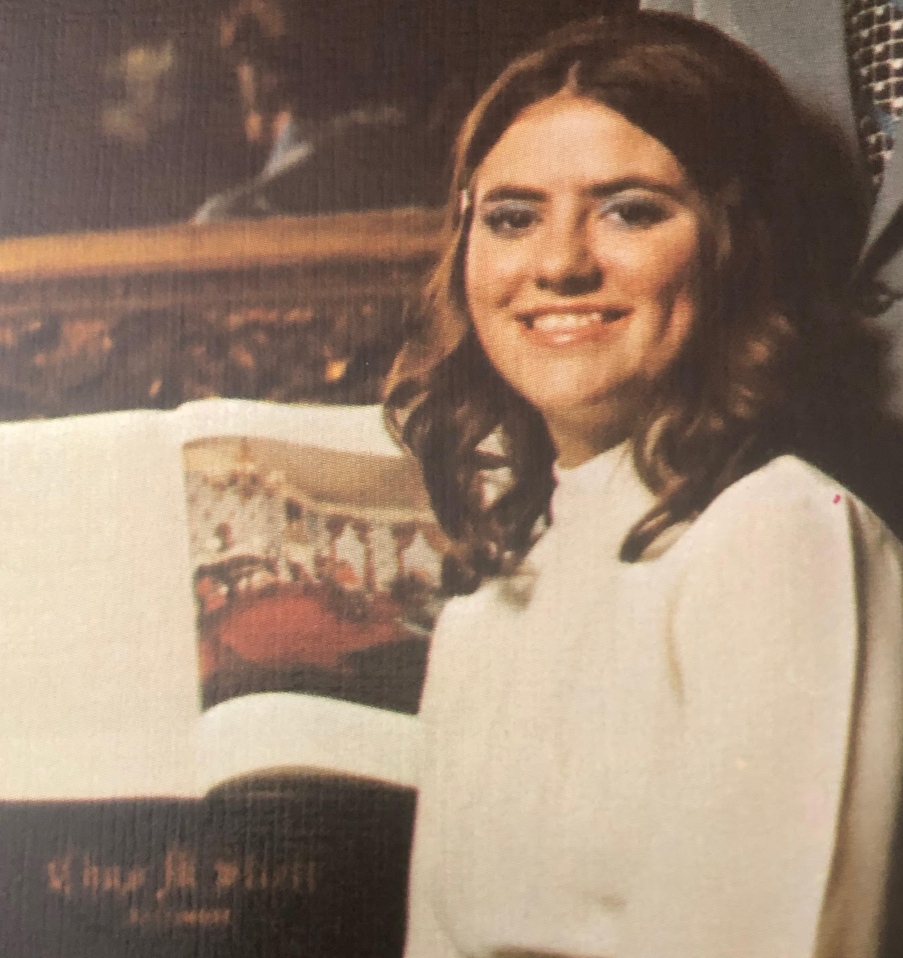
She and I graduated high school together in Tennessee. She was beautiful, outgoing, and kind, voted “Friendliest” in our senior class. Adrienne was also a member of the National Honor Society so you can add smart to all the other descriptive adjectives.
Like many schoolmates, we connected on Facebook. As I began to follow her posts, I was astounded by her story. She was writing about her struggle with Corticobasal Degeneration.
Cruelest disease no one every heard of
I had to look that up. Like many, I had never heard of Corticobasal Degeneration. Perhaps because there are only 3000 cases worldwide.
“I am in the sixth year of a disease with a life span average of 6-8 years. I am convinced that prayer has kept me ‘upright’ but I am worsening and I am scared.”
As is often the case with a rare disease there are stark realities. The gradual loss of brain tissue and symptoms typically begin between ages 45 and 70. Initial issues include stiffness; shaky, slow or clumsy movements; and difficulty with speech and comprehension.
Other symptoms include:
- Difficulty walking and balancing
- Short-term memory problems, such as repeating questions or misplacing objects
- Difficulty controlling muscles of the face and mouth
- Progressive difficulty speaking and difficulty comprehending language
Symptoms related to muscle control usually begin on one side of the body and spread gradually to the other.
“My first indication was a decreased ability to type that I noticed in 2015. I had always been an extremely fast typist, and one day, I noticed that I wasn’t fast, that I didn’t know where the keys were, and I couldn’t get my fingers to do what I wanted them to do. I actually looked at my fingernails to see if they were perhaps too long. Then, a few days later, I couldn’t manipulate a fork and knife to cut a piece of steak.”
When Adrienne first began experiencing some of these signs, she was angry and confused. Doctors initially thought it was Parkinson’s disease.
“It took 18 months to get a definitive diagnosis of corticobasal degenerative disease. Similar to Parkinson’s they don’t know why and there is no cure. It attacks your limbs, first one and normally, eventually all. I have no use at all of my left arm. It is harder than you think to try to do anything with one arm. They call these neurological disorders ‘prime of life’ diseases because they strike mid-life.”
Facing tragedy
The year was 1974. The year we graduated high school has been referred to by some historians as the year that laid the groundwork for the future. Blazing Saddles, Young Frankenstein, and Godfather II were movie blockbusters. We listened and danced to Elton John, Grand Funk Railroad, and Chicago. We knew all of the words to The Carpenters, “Top of the World.” We felt we were on top of everything. Fearless and invincible.
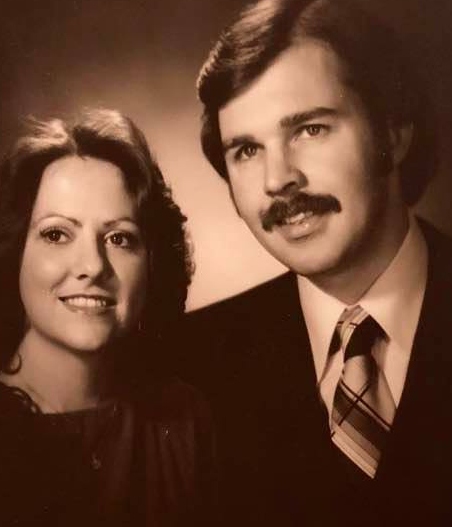 Most of our classmates went to nearby Middle Tennessee State University. Adrienne took a different path. She left for Nashville to take a job at a bank. Over the years, she worked in apartment management, where she met her future husband, Steve.
Most of our classmates went to nearby Middle Tennessee State University. Adrienne took a different path. She left for Nashville to take a job at a bank. Over the years, she worked in apartment management, where she met her future husband, Steve.
“I worked there until we got married two years later. After our two sons, Matthew and Patrick, were born I was basically a stay-at-home mom, only working part-time at night so I didn’t have to put them in daycare.”
Adrienne’s world was first broken when her husband died just six weeks after a diagnosis of kidney cancer. They had been married for 27 years when the love of her life left her. She was devastated.
Grieving and another reality check laid ahead. She was now a single parent with two boys to raise.
“I needed to find something that I could do quickly and make some good money. I worked in real estate until I had to quit in 2019 because of my disease.”
Messages from the heart
Adrienne recently started a personal blog on Facebook. Sometimes writing can be cathartic. Her blog is profound and real. When we think our problems are insurmountable, it’s very uplifting to hear another side of a very personal story.
The following are some of the excerpts from Adrienne’s journey.
July 7
“There is nothing worse, I have decided, than having nothing to do and nothing to look forward to. Day after day is the same. I went from a full, almost too busy life, to napping every day just to get rid of a few hours. There are things worse than death.”
July 11
“I had a long, overdue breakfast yesterday with a dear friend. It was wonderful but not normal and when I shut my door at home, I wept. It was nothing she did. Instead, it was just so sad how different things were compared to our countless other lunches and dinners. I’m telling you never take your health for granted because it is the one thing money can’t buy.”
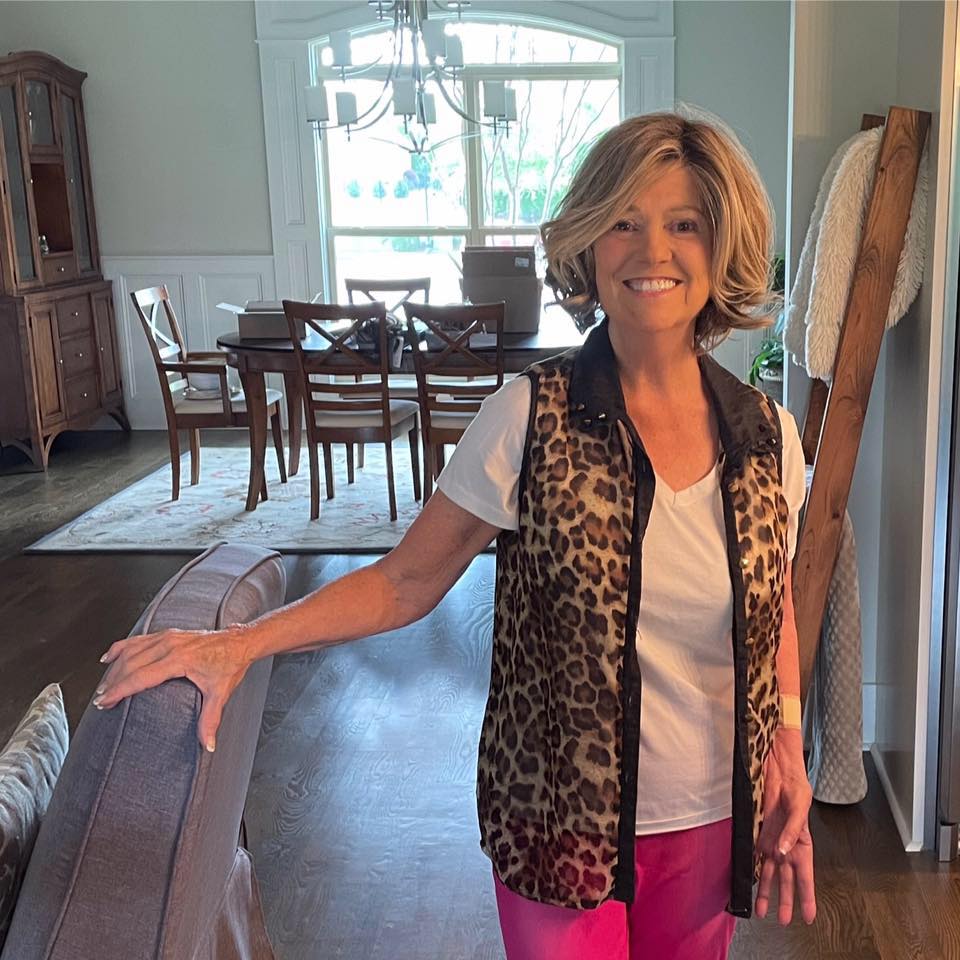 “A brief update after a visit with my neurologist yesterday. Nothing really of note because these visits are merely to track my symptoms and perhaps tweak my medicine.
“A brief update after a visit with my neurologist yesterday. Nothing really of note because these visits are merely to track my symptoms and perhaps tweak my medicine.One thing he said cut me to my heart, “This is the first time I’ve ever seen you not in high heels.”
August 1
“This past week has been challenging. I am determined to somehow post something funny and uplifting but it might not be today. Anyway, back to my week. I live with my son and his wife and their children. They went on a well-deserved vacation. I can’t really be alone because of dressing, cooking, etc. So, at only 65, I have to have a babysitter.
My Wednesday helper got sick and couldn’t come and I was alone. I had no dinner because I dropped it in the floor trying to get it out of the refrigerator with one hand. It was almost like playing house as a child because I could pretend that I was myself and normal, just me and the dogs like hundreds of other nights. But of course, it was just a dream that had a stark reality because I slept in my clothes because I can’t change a top with one arm. It felt good though for a few hours.”
August 27
“I miss hugging with two arms, driving, cooking, dressing myself, working, bathing myself, making my bed, shopping, playing with my grandchildren, feeling carefree, being independent, taking one pill a day instead of 20, putting on makeup, writing, and typing.”
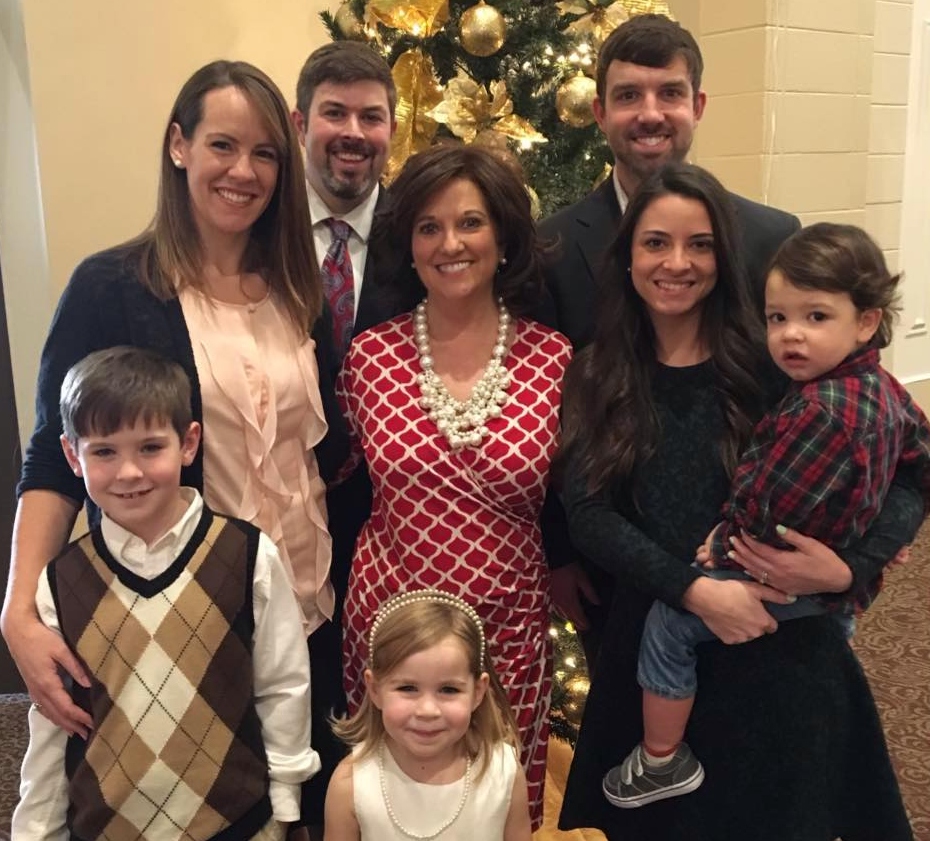
Keeping the faith
Recently, Adrienne began to lose mobility in her left leg. In the past year, her speech has become affected.
“I have moments of happiness but I’m like a stranger living in someone else’s body.”
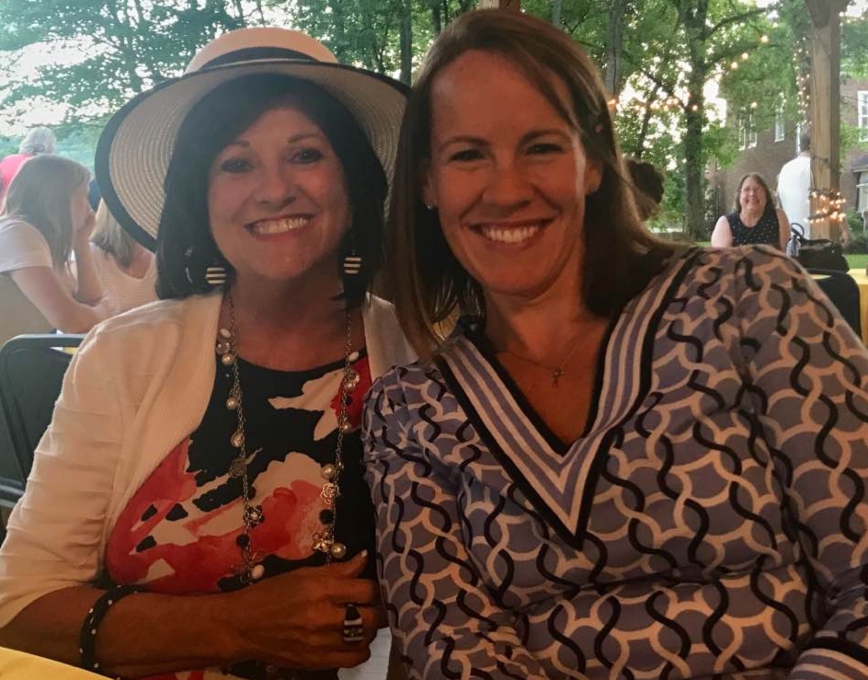
Adrienne is also lifted by prayers from all who know her. She has a big, loving family including two sons who would do anything for her. She lives with her oldest, Matthew, and his family. Her daughter-in-law, Maria, dresses her and puts on her makeup every day. Her grandchildren kiss her good night and she loves on two sweet fur babies.
Facts and hope
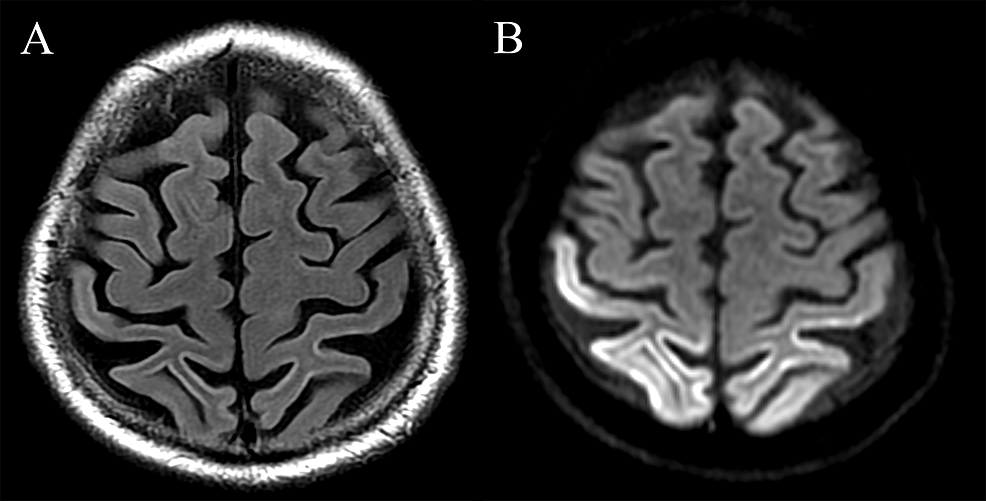
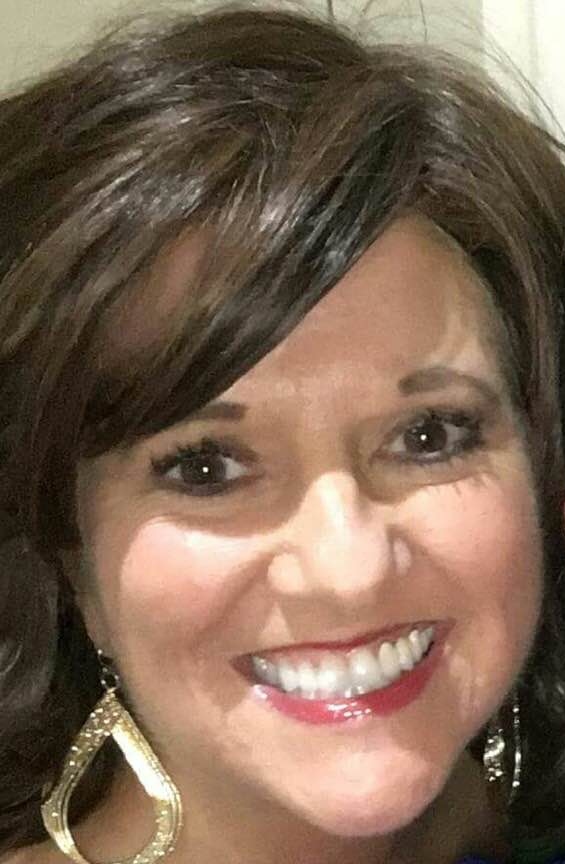 In 1974 when everyone in our graduating class had hopes and dreams for the future, a beautiful young woman blazed her own trail. She suffered through the loss of her soulmate. She raised two sons as a single mom. She is a Jesus follower, a mom, and a Mimi to her grandchildren. She has a sense of style and can rock a hat like nobody’s business. Throughout her diagnosis and everyday struggles, which must feel insurmountable, she maintains a million-dollar smile.
In 1974 when everyone in our graduating class had hopes and dreams for the future, a beautiful young woman blazed her own trail. She suffered through the loss of her soulmate. She raised two sons as a single mom. She is a Jesus follower, a mom, and a Mimi to her grandchildren. She has a sense of style and can rock a hat like nobody’s business. Throughout her diagnosis and everyday struggles, which must feel insurmountable, she maintains a million-dollar smile.



